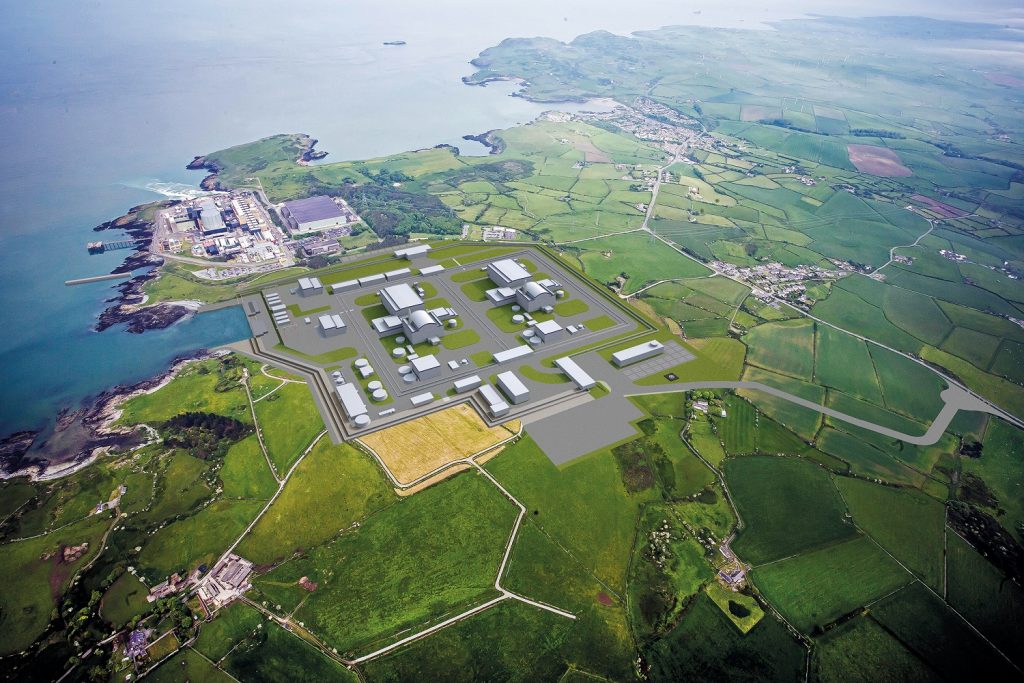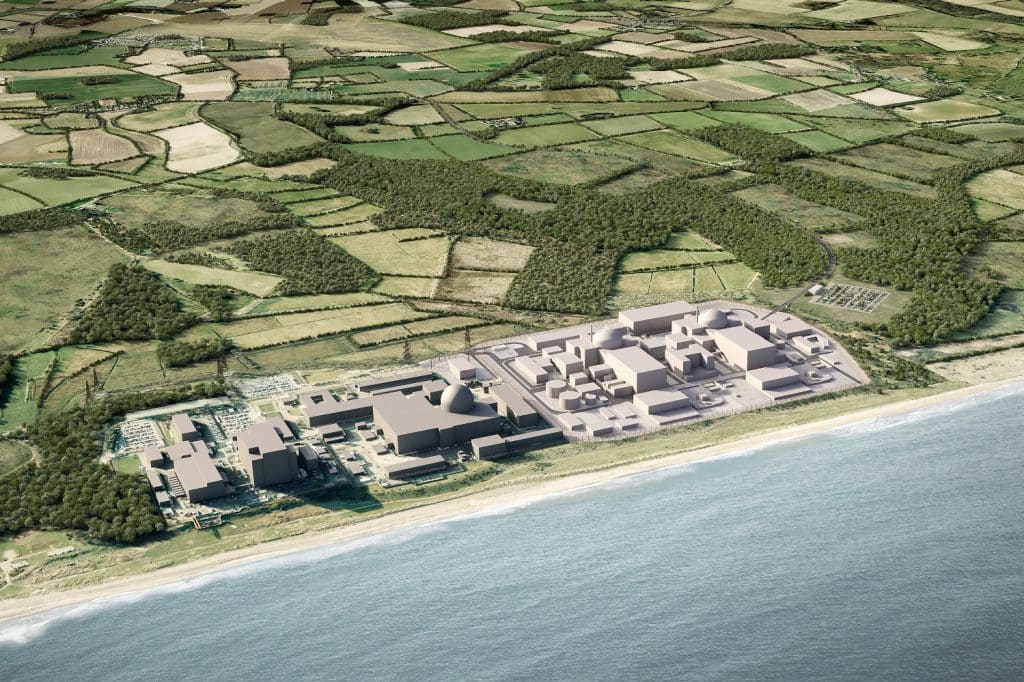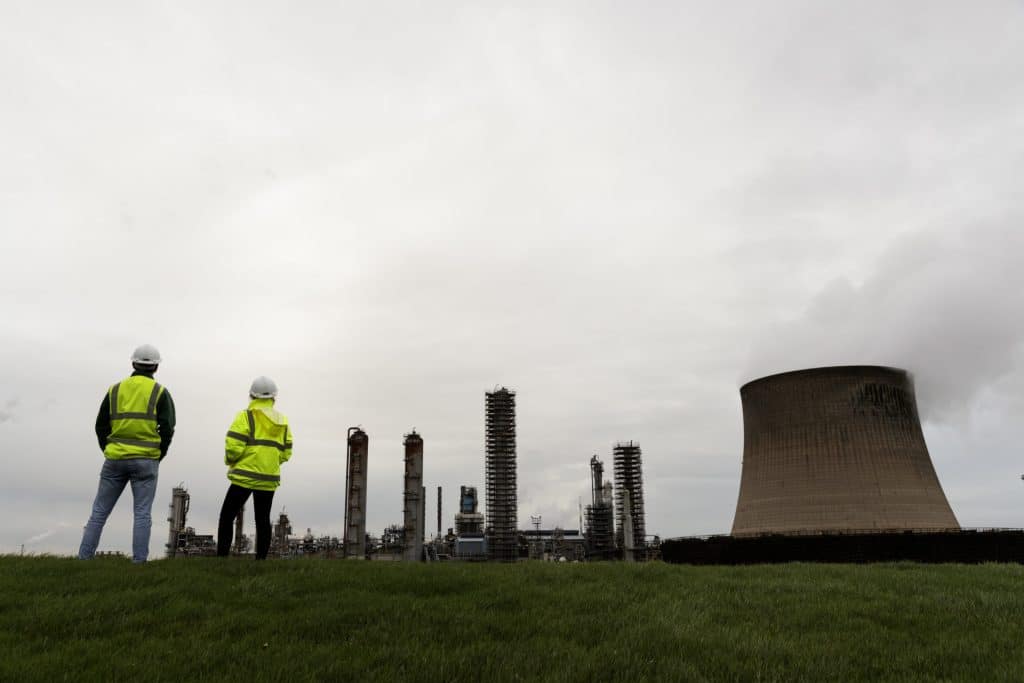Government publishes roadmap to reaching 24GW nuclear generation

This post was originally published on this site

The UK government has released a roadmap to enact the biggest expansion of nuclear power in the UK for 70 years, hoping to increase nuclear generation to 24GW by 2050.
The Civil Nuclear Roadmap details plans to increase nuclear power by four times its current amount, which will account for almost a quarter of the UK’s electricity demands in 2050. The plans also include the provision to build a new power station as big as Hinkley Point C and Sizewell C.
The government believes its Civil Nuclear Roadmap will provide the industry with certainty of the future direction of the nuclear programme, building on its commitment to Sizewell C and its competition to develop small modular reactor (SMR) technology. It also builds on the establishment of the new body Great British Nuclear (GBN) last summer.
The plans include the next steps for exploring a GW-scale power plant as big as Sizewell in Suffolk or Hinkley in Somerset and also include a government ambition to secure 3-7GW worth of investment decisions every five years from 2030 to 2044 on new nuclear projects.
Wylfa, on the island of Anglesea in Wales, has long been earmarked as the location for the next large-scale plant in the UK, though no official move has been made to buy the land from current owners Hitachi. Last November, the Nuclear Energy All Party Parliamentary Group urged the government to move ahead with the plan.
Also included in the Civil Nuclear Roadmap are plans to streamline the development of new power stations and introduce “smarter” regulation. This will aim to speed up the overall process and delivery of nuclear power in the UK. It includes allowing regulators to assess projects while designs are finalised, and better join-up with overseas regulators assessing the same technology.
The roadmap further includes the publication of two consultations, one on a new approach to siting future nuclear power stations and another on supporting the sector and encouraging private investment to roll out advanced nuclear projects.
Analysis by the Nuclear Skills Strategy Group suggests that to reach up to 24GW, the civil and defence nuclear workforce will need to double over the next 20 years – supporting around 80,000 additional skilled jobs across the UK.
The government reports that the Nuclear Skills Taskforce will shortly set out plans to meet the demand of the industry. This plan is likely to include increasing the numbers of graduates and apprentices and attracting mid-careerists with relevant skills and expertise.
As part of the Civil Nuclear Roadmap, the UK becomes the first country in Europe to launch a high-tech nuclear fuel programme, named HALEU, with up to £300M investment to be provided for the production of fuel to power nuclear reactors.
The government believes this investment will allow the UK to lead the way from its North West production hub to provide the world with uranium fuel, with the first plant aiming to be operational early in the next decade. This builds on the ambition to return uranium conversion to the Springfields nuclear fuel site.
An additional £10M will be provided to develop the skills and sites needed to produce other advanced nuclear fuels in the UK, helping to secure long term domestic nuclear fuel supply and support our allies.
Prime minister Rishi Sunak said: “Nuclear is the perfect antidote to the energy challenges facing Britain – it’s green, cheaper in the long term and will ensure the UK’s energy security for the long-term.
“This is the right long-term decision and is the next step in our commitment to nuclear power, which puts us on course to achieve net zero by 2050 in a measured and sustainable way.
“This will ensure our future energy security and create the jobs and skills we need to level up the country and grow our economy.”
Secretary of state for energy security and net zero Claire Coutinho said: “Strengthening our energy security means that Britain will never again be held to ransom over energy by tyrants like Vladimir Putin. British nuclear, as one of the most reliable, low-carbon sources of energy around, will provide that security.
“We’re making the biggest investment in domestic nuclear energy in 70 years. Our £300M plan to produce advanced nuclear fuel in the UK will supply nuclear plants at home and overseas – further weakening the Kremlin’s grip on global energy markets.
“From large gigawatt projects to small modular reactors, the UK’s wider nuclear revival will quadruple our nuclear capacity by 2050 – helping to power Britain from Britain.”
Minister for nuclear Andrew Bowie said: “The government’s investment in nuclear will ensure the UK remains at the forefront of technological developments.
“Our plans will give investors the confidence to back new UK projects, with a simpler process for locating new schemes and clear support for private sector companies developing innovative new technologies.
“By meeting a quarter of our electricity demand with nuclear, we will strengthen our energy independence, reduce bills and support jobs across the UK.
“The roadmap will also confirm plans for decommissioning to make sure they remain suitable for new nuclear technologies and protect future generations from bearing the costs.”
Nuclear Industry Association chief executive Tom Greatrex said: “We welcome the publication of the roadmap – the commitment to explore a further large-scale project beyond Sizewell C in parallel with the deployment of SMRs is very welcome.
“We will need both large and small nuclear at scale and at pace for our energy security and net zero future. Allowing developers to engage with the government about Regulated Asset Base funding models should also make it cheaper to finance projects, cutting costs to the consumer.
“Decisions on 3-7GW in each five year period provide the greater clarity and predictability, which in turn enables supply chain investment and more UK content in the future fleet.”
GBN chief executive Gwen Parry-Jones said: “Since GBN started the SMR technical selection process last July, we have moved strongly forward and are on track to complete vendor selection later this year. Shortly we will invite the six companies we have selected to submit tenders.
“The Civil Nuclear Roadmap provides a framework for GBN to help deliver more safe, clean and affordable UK nuclear power to UK consumers. Together with industry, we will enthusiastically take up the role the government has set out for us in delivering and advising across the UK’s nuclear programme. We are actively building GBN’s capability to take on the challenge ahead.”
Turner & Townsend UK head of natural resources director Alan Sinclair said: “The Civil Nuclear Roadmap is a welcome reassertion of government’s commitment to GBN announced last summer and to increasing the UK’s nuclear power generation four-fold by 2050.
“Delivering this growth in capacity will clearly be an immense task and will take private investment as well as the public funding already laid out. A consistent direction of travel is fundamental to providing investors with the confidence to back programmes across the sector.
“A clear, stable pipeline of work will also be crucial to building the specialist skills and supply chain needed for the scale and complexity of nuclear power projects. As we head towards a General Election, we need government to maintain this steady course – regardless of the outcome at the ballot boxes.”
Like what you’ve read? To receive New Civil Engineer’s daily and weekly newsletters click here.





Responses